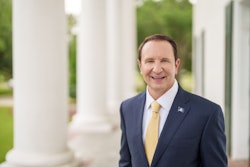CHAPEL HILL, N.C. — A panel at the University of North Carolina panel is recommending the elimination of three university centers, including one whose director has been an outspoken critic of Gov. Pat McCrory and Republican lawmakers.
Multiple media outlets report the UNC Board of Governors panel discussed its recommendations Wednesday. For months, it has been reviewing all 240 centers and institutes that conduct research and policy analysis in the UNC system.
The panel recommended that 13 centers undergo further study by their individual campuses over the next six months to a year. Eight of the 240 have already been discontinued by their campuses. But the panel recommended closing three, including UNC-Chapel Hill’s Center on Poverty, Work and Opportunity.
Its director, Gene Nichol, has written opinion pieces critical of the governor. Chapel Hill campus leaders required Nichol to include a disclaimer in his writings, indicating he doesn’t speak for the university. Nichol is calling the panel’s recommendation dishonest, especially when poverty is a pressing state issue.
“This charade, and the censorship it triggers, demeans the board, the university, academic freedom and the Constitution,” he said in a statement.
Jim Holmes, the panel’s chairman, said the recommendation had nothing to do with academic freedom or the importance of studying poverty.
“There’s not one person on this board that doesn’t believe poverty doesn’t need to be addressed in the state. The university should be focused on that. We’re absolutely committed to it. This is not a commentary on poverty proper,” he said.
The other two centers recommended for closure are: East Carolina’s Center for Biodiversity and N.C. Central University’s Institute for Civic Engagement and Social Change.
The report will go before the full Board of Governors next week.
In the last fiscal year, UNC centers and institutes received $69 million in state appropriations, down nearly 40 percent since 2008. State lawmakers last year asked the Board of Governors to look at ways to divert funding for the centers to other UNC system programs, such as an endowment for distinguished professors.


















